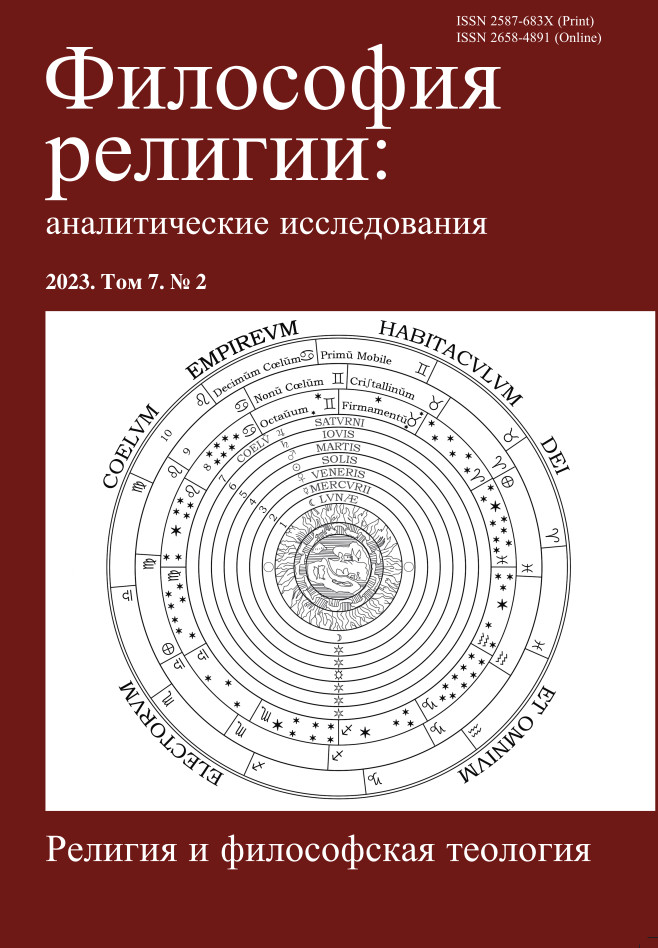Semirationalist Tendencies in Catholic Theology in the First Half of the 19th Century
DOI:
https://doi.org/10.21146/2587-683X-2023-7-2-60-79Keywords:
Semirationalism, Catholic theology, Georg Hermes, Hermesianism, Anton Günther, Güntherianism, criticism, philosophical-theological rationality, reason, methodical doubt, religious-empirical epistemology, psychologism, Divine properties, analogical cognition of GodAbstract
At the onset of the 19th century, a demand for a renewal of thinking forms in Western Christian theology emerged with great clarity. This was primarily due to the intensification of emancipation and secularisation processes in society and the humanities, and the emergence of major, highly influential systems of philosophy that directly addressed questions of religious knowledge and doctrine. This challenge has been especially problematic and painful for Catholicism, whose conservative epistemology attaches great importance to the continuity of Church teaching and tradition. This article highlights the context and some striking episodes of this transitional situation on the example of attempts to adapt elements of Kantian criticism and other emerging philosophical-rationalist paradigms and categories to Catholic thought made by the important German-speaking dogmatists of the time, Georg Hermes and Anton Günther. The author explains why their ideas and schools formed around them (Hermesianism and Güntherianism) were attributed to the Semirationalism and officially declared heterodox, and demonstrates their ideological and epistemic affinity. Particular attention in the article is paid to the critical method of “positive doubt” and the principles of empirical-psychological epistemology, addressed to the data of human consciousness. Special section is devoted to a detailed analytical demonstration of the application of these approaches within the framework of the philosophical-dogmatic reflection of the properties of God in the main works of Hermes. The author concludes that in spite of controversy and failure at a particular historical stage, the speculative and methodological insights of Hermesianism and Güntherianism had a constructive for their time apologetic significance and somehow endured reception in Catholicism, contributing to the formation of the modern Gestalt of theology as a scientific discipline.

 This work is licensed under a
This work is licensed under a 
